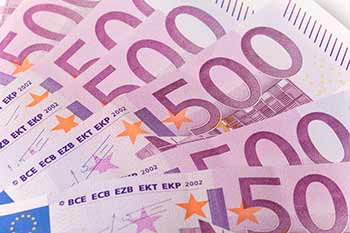The Euro to Australian Dollar (EUR/AUD) exchange rate recorded +1.04% market movement in the second half of Tuesday’s European trading, as investors believed that the anti-austerity party Syriza could renegotiate debt repayments without causing a Greek exit from the Eurozone.
Earlier… The Euro to Australian Dollar (EUR/AUD) exchange rate advanced in Tuesday’s European session, despite Australian NAB Business Confidence rising from 1 to 2 in December.
In a quiet day for Eurozone and Australian ecostats, the EUR/AUD exchange rate could fluctuate on global developments.
Earlier… The Euro to Australian Dollar (EUR/AUD) continued to climb in the second half of Monday’s European session as losses surrounding the Greek election were deemed overdone.
Forex expert Jeremy Stretch commented: ‘We saw the Euro selling off initially, but now we’ve had a bit of a bounce.’
Earlier… The Euro to Australian Dollar (EUR/AUD) exchange rate reclaimed some of the weekend’s losses on Monday after anti-austerity political party Syriza won the Greek election.
Investors are now hedging their bets as to whether Greece will leave the Eurozone in what has been coined a ‘Grexit’. Syriza won with two seats short of an absolute majority and wish to renegotiate Greece’s austerity conditions, which could end with the nation’s exclusion from the Eurozone.
Bundesbank President Jens Weidmann said that he hoped ‘the new Greek government will not make promises that it cannot keep and the country cannot afford.’
Meanwhile, UK Prime Minister David Cameron also threw in his two cents, stating that the result of the Greek election would ‘increase economic uncertainty across Europe.’
However, after an exciting weekend for the Eurozone, Germany has released favourable figures on Monday. German IFO Business Climate (which shows sentiment in the business sector) rose from 105.5 to 106.7 in January, above the forecast 106.5.
The IFO Current Assessment ecostat also jumped from 110.0 to 111.7, a much more favourable figure than the 110.8 predicted. Additionally, IFO Expectations advanced in January, just a little less than the 102.5 forecast. A smaller increase from 101.1 to 102.0 was recorded, still an upbeat figure for the currency bloc.
RBA Rate Cuts Weigh on Australian Dollar to Euro (AUD/EUR) Exchange Rate
Meanwhile, the Australian Dollar to Euro (AUD/EUR) exchange rate has been trending lower as investors weigh up the possibility of a Reserve Bank of Australia (RBA) rate cut. The Australian Dollar has tumbled against other majors recently as monetary policy from many major banks has taken a surprising turn.
Last week the European Central Bank (ECB) announced it would be introducing a period of quantitative easing (QE)—a move that was deemed one of the last viable options for the central bank by many economists.
In addition, the Bank of England (BoE) saw its hawks turn to doves, with a unanimous vote from the Monetary Policy Committee (MPC) to keep the benchmark interest rate at 0.50%. The Bank of Canada (BOC) also recently slashed its interest rate from 1.0%, where it’s resided for the past four years, to 0.75%.
As a result of global central bank dovishness, investors are forecasting the RBA and Reserve Bank of New Zealand (RBNZ) will need to cut rates to stimulate growth amid a worldwide slowdown.
Market strategist Greg Gibbs stated: ‘The RBA is probably going to stay on hold next month but there’s a not-insignificant chance that they do cut. They’ll have a more dovish tone in the language at least.’
However, as some economists suggest the RBA may wait a while, others say it’s inevitable.
Forex expert Kumar Palghat commented: ‘There is an increasing possibility that the RBA—just like the Bank of Canada—takes an insurance policy by cutting rates. Whether they do it this month or next is only a matter of time.’
Euro to Australian Dollar (EUR/AUD) Exchange Rate Forecast
The Euro to Australian Dollar (EUR/AUD) exchange rate will have many opportunities to fluctuate this week, with the release of several pieces of influential data. Although Monday is a quiet day for data, Tuesday will see the release of Westpac’s Leading Index ecostats which could have a moderate influence on the Australian Dollar to Euro (AUD/EUR) exchange rate.
However, Wednesday will really heat up ‘Aussie’ trading when Australian Consumer Price Index figures are out. At present, the annual figure is expected to decline from 2.3% to 1.8%—an event that could pressure the Australian Dollar lower.
Thursday will be a big day for Euro trading with the release of German Unemployment Change, Unemployment Rate and Consumer Price Index stats. Friday will continue on with the heavy data as Eurozone Consumer Price Index and Unemployment Rate figures emerge.
The Euro to Australian Dollar (EUR/AUD) exchange rate is presently trending in the region of 1.4228 with market movement of +0.72%.



